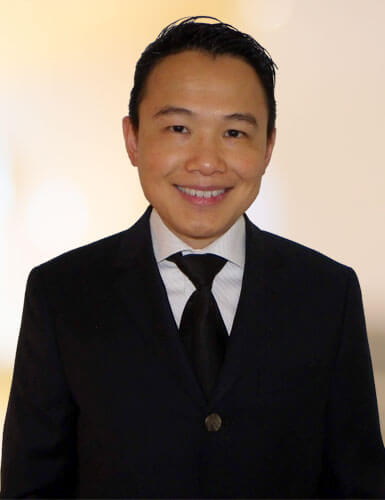Barrie dentist: how you can get affordable dentistry, or “The value of prevention and a step-by-step approach”.
Posted: November 16, 2014
Last Modified: March 13, 2019
If you are looking for affordable dentistry in the form of lower fees, this article is not for you. At Dr. Elston Wong Dentistry, we basically adhere to the current year fees from the Ontario Dental Association Fee Guide. However, there are definite ways to make dentistry affordable, which become more important as one’s dental needs increase.
Let’s frame the discussion – we are presuming that patients are interested in having healthy teeth. We also understand that the healthiest mouth is a full set of teeth that is free of fillings, free of decay, free of gum disease, suffers no jaw joint (TMJ) or muscle problems, and as a bonus, also looks good (although there is no disease called “crooked teeth”). The only dentistry a mouth like this requires is regular professional hygiene visits.
If this is our gold standard for health, then anything less can be considered a legitimate candidate for treatment. The more a mouth deviates away from ideal, the more treatment will be required to bring it back to health, and of course, the higher the cost. So, how does one bring a mouth back to health, but still make it affordable dentistry?
There is no getting away from paying for quality dentistry, but there are three things to do to make it easier to pay for:
1) do it right the first time
2) focus on prevention
3) stabilize your bite so you can spread out your treatment.
Three simple statements, but oh so loaded with uncertainty. We will examine each of these items separately:
Doing it right the first time
Cheaping out on dentistry by choosing quicker, easier procedures often has the unintended consequence of costing more in the long run, when trying to undo the effects of the earlier dentistry. For example, by extracting a single tooth instead of having root canal treatment done, one can save money in the short run. Look at the side effects of dental drifting, bone loss, and the costs of possible orthodontics, bone grafting, and replacement of the missing tooth, and it is easy to see how replacing the tooth ends up costing more than the root canal. Furthermore, any replacement tooth is not going to be as good as saving a real tooth, and if a decision is made not to replace the tooth at all, then there is added load on the remaining teeth. This additional “work” required of the remaining teeth ends up causing more breakdown per tooth over time.
A common scenario is also a patient who decides to “try” wearing partial or complete dentures before realizing that the better choice would have been implants all along. Frequently we will hear of stories like “I never wore my dentures because they were uncomfortable”, or “They never fit in the first place and I never went back”. Those dentures were probably not the first recommendation made by the dentist, and the money spent on them was basically wasted.
Dentistry done properly may cost more initially, but will lead patients to the best outcome. This means selecting procedures that have better longevity based on evidence-backed decisions. Sometimes the best dentistry is an extraction with no replacement!
Focus on prevention
Preventive dentistry aims to forecast those things a patient is at risk of, and then taking measures to prevent those things from occurring. So essentially, it involves some degree of crystal-ball gazing using present-day information. The benefits of prevention are obvious: teeth develop fewer problems and last longer, gums stay healthier, and the overall cost of dental treatment is radically reduced. Here is an example: we offer a treatment called Prevora for our patients at high risk of dental decay (defined as a history of three cavities or more in three years). This treatment is a chlorhexidine aceatate coating applied to the teeth as an antibacterial agent that can i) reduce the cavity-causing bacterial counts in the mouth, and ii) shift the population of bacteria to one that is more tooth-friendly. It is a solidly proven product that unfortunately is often not covered by dental insurance.
For an individual at high risk of dental decay, for example, a patient with xerostomia (dry mouth) as a result of medications or Sjogren’s disease, the cost of Prevora would be trivial compared to the cost of fillings, root canals, crowns, and more that would be required if decay were to develop aggressively. What was perhaps regarded as “unnecessary” is suddenly seen as a pretty good idea.
Need another example? Tic tacs. These little candies have wreaked untold damage to teeth in those individuals who suck on them throughout the day. Because decay grows quite large before it becomes symptomatic, often we see the ravaged mouths far too late. The cost of prevention? $0. All that was required was to stay away from the candies.
Stabilize your bite so you can spread out your treatment
This is likely the least well understood of the three items. When one has severely broken-down teeth that require extensive reconstruction to bring them back to proper function, it is often a financially daunting proposition. These are situations where there is often no recourse but to treat all the teeth at once, and the solution may be crowns on most, if not all the teeth. In our goal of affordable dentistry, we can look for methods of opening up the bite using temporary crowns or onlays on the teeth. These materials are made for the medium term (about 2 years), and allows patients to enjoy a stabilized bit that they can gradually convert to proper long-term crowns one tooth at a time. The trick though, is to get the bite correct. When one can achieve a well balanced bite that is comfortable to the patient and allows full function, the forces on the teeth are minimized and thus allow even temporary restorations to last longer.
One never wishes for extensive dentistry, but there are situations that must be addressed or else tooth loss is inevitable. If you have problems with your mouth and require affordable dentistry, or are just interested in a prevention-first approach, contact us! We’d love to be your Barrie dentist.


